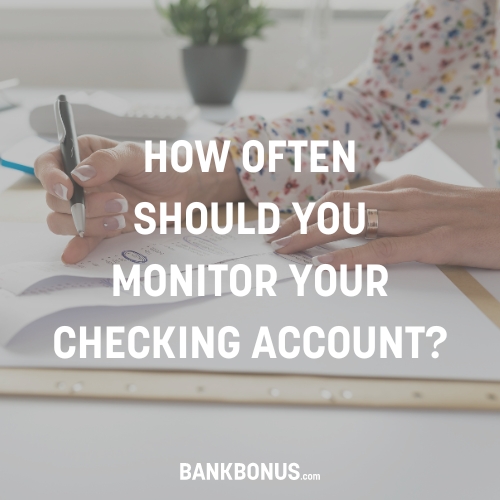Credit cards are the most popular form of credit in the United States. Each year, companies come out with credit cards with more enticing sign-up bonuses, rewards, and lower annual fees. As you open more credit cards, you may be wondering should you close unused credit cards.
The answer to whether you should keep or close your unused credit cards may be more complicated than you might think.
Keep reading to find out the effect of unused credit cards on your credit score and what to do about it.
What an Unused Credit Card Does to Your Credit
When it comes to the effect of unused credit cards – and credit cards in general – on your credit score, there are two concepts to keep in mind: credit utilization and the age of accounts.
1. Credit Utilization
Credit utilization refers to the amount of revolving debt that you have compared to your total lines of credit.
This is often expressed as a percentage, known as a credit utilization ratio. Leaving unused credit cards open can increase your credit limits, which can decrease your overall credit utilization.
For example, imagine that you have two credit cards: one with a credit limit of $3,000 and another with a credit limit of $2,000.
If you are carrying a balance of $1,000 on one credit card, your credit utilization ratio is only 20% ($1,000/$5,000 = 20%).
However, if you close your unused credit card with a $3,000 limit, your credit utilization will jump up to 50% ($1,000/$2,000 = 50%).
Having a credit utilization ratio that’s this high can signal to lenders that you are prone to maxing out your credit limits, even though it’s technically the same amount of debt that you had with two open credit cards.
Credit bureaus greatly consider credit utilization in your overall credit score. In fact, your credit utilization ratio makes up 30% of your overall FICO score, which is the most commonly used credit score by lenders.
Most credit experts advise keeping your credit utilization ratio under 30% to improve your credit.
2. Average Age of Accounts
Another important factor in determining your credit score is the average age of your accounts.
Creditors like to see that you are able to maintain lines of credit for long periods of time because it proves that you can handle the responsibility of credit.
If the average age of your accounts is high, this is considered a good indicator of a responsible borrower. On the other hand, if the average age of your accounts is low, it could signal that you are prone to making hasty decisions about credit and your finances.
If we go back to the example of the two credit cards, imagine that you’ve had the card with the $3,000 limit for 10 years and the card with the $2,000 limit for 5 years.
With both of these cards, the average age of your accounts would be 7.5 years. If you were to cancel the older card, the average age of credit would drop to 5 years.
While the average age of accounts only makes up for roughly 15% of your FICO score, it can be a determining factor in whether or not lenders feel you can responsibly handle credit.
It is best to hang onto the oldest credit accounts to help increase your average age of accounts.
Why It’s Better to Keep Unused Credit Cards
Canceling unused credit cards may sound like a smart financial decision, but it will ultimately reflect poorly on your credit rather than if you just kept them without using them.
Keeping old, unused credit cards can help boost elements of your credit that account for up to 45% of your FICO score.
- A simple way to improve your credit score. Assuming that the credit card is older and uses little – if any – of its available credit, unused cards are an easy way to increase the average age of your credit and decrease your credit utilization ratio.
- Shows good credit management. If you have a line of credit open but you don’t use it, this will show credit bureaus and lenders that you are capable of having access to credit without blowing it all.
- Keeping your oldest credit card will increase the average age of your accounts. This proves to the credit bureaus that you can maintain good credit habits over long periods of time.
Alternatives to Canceling Your Unused Cards
Canceling your unused credit card accounts can harm your credit score, which can affect your ability to qualify for low-interest rates later on. If you decide to keep your unused credit cards, there are options to keep you from paying fees or overspending.
1. Cut up the card.
You can’t use a credit card that you don’t have. If you are a chronic overspender, cutting up your old credit card can keep the line of credit open and prevent you from spending all your money.
Just be sure to watch the account activity anyway. Unused credit cards can put you at risk of identity theft if you aren’t carefully watching your account activity.
2. Work with a non-profit credit counseling agency.
Credit card debt is one of the most brutal and common forms of debt. Once you’ve dug yourself in, it can be hard to pull yourself out again. If you are struggling to overcome credit card debt, a non-profit credit counseling agency may be able to help.
Credit counseling is a service that helps you get out of debt, improve your credit report, and manage your money long-term. They are also skilled at negotiating lower interest rates to help you repay your debt more quickly.
3. Strike a deal with the credit card company.
If you’re considering canceling your card due to high interest rates or annual fees, you may be able to negotiate with the credit card company to get a fee waiver or lower the interest rate.
Credit card companies want to keep you as a customer. This means that they are willing to negotiate with you on the fine print of your card if it means keeping you as a customer. Some credit card issuers will consider a fee waiver or interest rate reduction to prevent you from closing the card.
You also may be able to downgrade to a no-annual-fee card instead.
When You Should Close Unused Credit Cards
While keeping your unused credit cards open is a good idea to boost your credit, there are certain situations when it may make more sense to close the card.
Here are some situations that make closing your credit card worth considering.
1. Store Credit Cards
We’ve all been there. The store clerk asks if you’d like to save X amount of money on your purchase today by signing up for a store credit card. If you signed up for a store’s credit card to get this discount, you’re not the only one.
However, that discount is likely the best perk you’ll ever get from this card, which means there’s really no point in keeping it open.
Closing store credit cards will typically do very little damage to your credit score. Because these are small retail cards and not cards from major issuers, credit bureaus usually rate them very low on credit utilization scales.
When it comes to these cards, it’s better to close them and take the small credit hit.
2. Credit Cards with High Annual Fees
If the credit card you’re considering closing has a high annual fee, you’re better off closing it. Some cards simply are not worth the high fees associated with them.
If you are unable to negotiate with the credit card company to waive the fee or downgrade you to a no-fee card, you should go ahead and close it.
3. Too Many Credit Cards
How many credit cards are too many? The answer to this question will vary from person to person. There isn’t an exact number of credit cards that are considered “too much” in the eyes of credit bureaus.
After all, everyone’s needs are different. But if you find that your credit cards are unmanageable, it isn’t a bad idea to close the lower priority cards and keep the cards you use regularly at the top of your wallet.
How to Cancel an Unused Credit Card
If you decide that it’s best to close your credit card and then keep it, you’ll need to follow these steps:
1. Pay off your balance.
It goes without saying that a credit card issuer won’t let you close your credit card account while there’s still a balance.
The first thing you need to do before you cancel your credit card is to ensure that the entire balance is paid off. If there are any pending charges, you will need to wait for those to post and pay them off as well.
If you need to close your card sooner rather than later, you may consider a balance transfer card.
Balance transfers are when you move your balance from one card to another. Many credit card companies see this as a way to get a foot in the door to keep you as a long-term customer.
Check around with other banks or credit unions to see if any are offering a 0% balance transfer offer for new customers.
2. Transfer any automatic payments to a new card.
Setting up automatic payments on things like your Netflix subscription or utility payments makes paying your bills easier and more convenient.
If you have any automatic payments set up on the card you plan to cancel, be sure to either move those payments to a new card or link them to pull funds from your account.
If you can’t remember which bills are connected to your card, try using a subscription tracking app to help you figure out the payments linked to your card and switch them over.
3. Redeem any unclaimed rewards.
Most credit cards today offer rewards to cardholders in the form of cashback, hotel points, airline miles, and more.
Before you cancel your credit card, be sure to redeem any lingering rewards left on your account. If you fail to redeem any unclaimed rewards, the credit card company will throw the baby out with the bathwater.
You earned those rewards, so don’t cancel without using them!
So, Should You Close Unused Credit Cards?
Credit cards can seem like a poor personal finance choice to some, but they can actually be a great tool to help improve your credit history.
If you keep your oldest credit cards and maintain a low balance, you will do wonders for your credit score and your personal loan prospects down the line.





Comments are closed.
Comments are closed here.